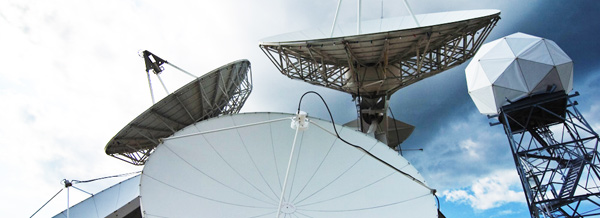- You are here:
- CCC Home
- |
- Activities
- |
- Funded Visioning Activities
- |
- Spatial Computing
From GPS and Virtual Globes to Spatial Computing-2020
Spatial Computing
Spatial Computing is a set of ideas and technologies that will transform our lives by understanding the physical world, knowing and communicating our relation to places in that world, and navigating through those places.

The transformational potential of Spatial Computing is already evident. From Virtual Globes such as Google Maps and Microsoft Bing Maps to consumer GPS devices, our society has benefitted immensely from spatial technology. We’ve reached the point where a hiker in Yellowstone, a schoolgirl in DC, a biker in Minneapolis, and a taxi driver in Manhattan know precisely where they are, nearby points of interest, and how to reach their destinations. Large organizations already use Spatial Computing for site-selection, asset tracking, facility management, navigation and logistics. Scientists use GPS to track endangered species to better understand behavior and farmers use GPS for precision agriculture to increase crop yields while reducing costs. Google Earth is being used in classrooms to teach children about their neighborhoods and the world in a fun and interactive way. Augmented reality applications are providing real-time place-labeling in the physical world and providing people detailed information about major landmarks nearby.
About the workshop
This workshop outlines an effort to develop and promote a unified agenda for Spatial Computing research and development across US agencies, industries, and universities. See the original workshop proposal here.
Call for Participation
This one-and-a-half-day NSF/CCC sponsored visioning workshop on Spatial Computing outlines an effort to develop and promote a unified agenda for Spatial Computing research and development across US agencies, industries, and universities.
Spatial Computing is a set of ideas and technologies that will transform our lives by understanding the physical world, knowing and communicating our relation to places in that world, and navigating through those places.
The transformational potential of Spatial Computing is already evident. From Virtual Globes such as Google Maps and Microsoft Bing Maps to consumer GPS devices, our society has benefited immensely from spatial technology. We've reached the point where a hiker in Yellowstone, a schoolgirl in DC, a biker in Minneapolis, and a taxi driver in Manhattan know precisely where they are, nearby points of interest, and how to reach their destinations. Large organizations already use Spatial Computing for site-selection, asset tracking, facility management, navigation and logistics. Scientists use GPS to track endangered species to better understand behavior and farmers use GPS for precision agriculture to increase crop yields while reducing costs. Google Earth is being used in classrooms to teach children about their neighborhoods and the world in a fun and interactive way. Augmented reality applications are providing real-time place-labeling in the physical world and providing people detailed information about major landmarks nearby.
The workshop will identify (1) fundamental research questions for individual computing disciplines and (2) cross-cutting research questions requiring novel, multi-disciplinary solutions. The workshop will include US leaders in academia and the public sector. Results of this workshop will be presented to the NSF in order to inform possible funding initiatives
The workshop will include presentations from invited thought-leaders and agency representatives, brainstorming, and interactive demos and focus group sessions with spatial computing professionals.
Travel, meals, and lodging expenses for up to 5 approved participants will be reimbursed by the CCC. Attendees must commit to participation for the entire workshop. We especially encourage researchers still in the early stages of their careers to apply.
We encourage interested experts from academia and government to submit a short (2 to 3 pages) position paper via the link below by August 5th, 2012. Ideally, a position paper would list research opportunities, open problems and grand challenges (both current ones as well as those emerging from trends in platforms and societal applications). An ideal whitepaper would focus on only one spatial computing area, such as remote sensing, computational geometry, spatial statistics, spatial databases, spatial cognition, etc. Selected applicants will be notified by August 10th, 2012.

